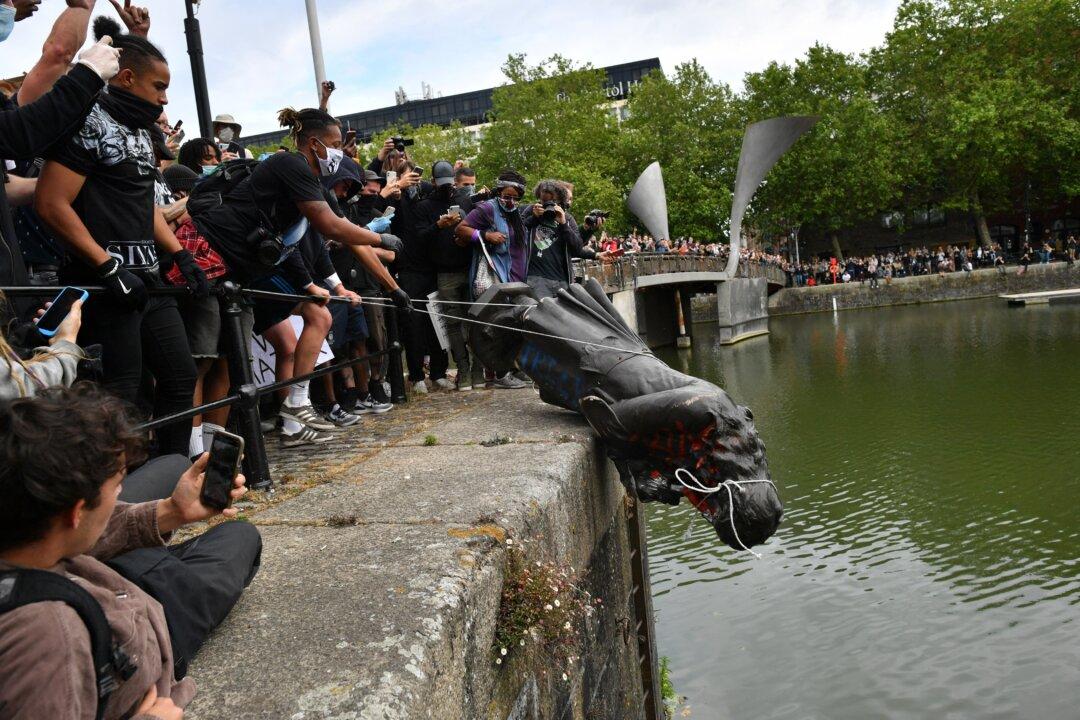The Court of Appeal in the UK has been asked to clarify the law over “uncertainty” caused by the Edward Colston statue case, Attorney General Suella Braverman said on April 13.
On Jan. 5, four people involved in toppling the statue during a Black Lives Matter protest in June 2020—Milo Ponsford, 25, Jake Skuse, 36, Sage Willoughby, 21, and Rhian Graham, 29—were acquitted of causing criminal damage by a jury, despite having acknowledged their involvement.





